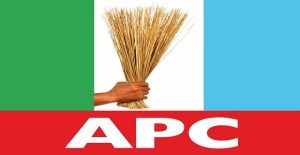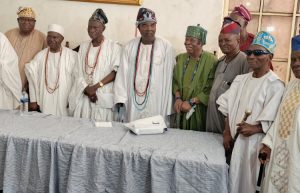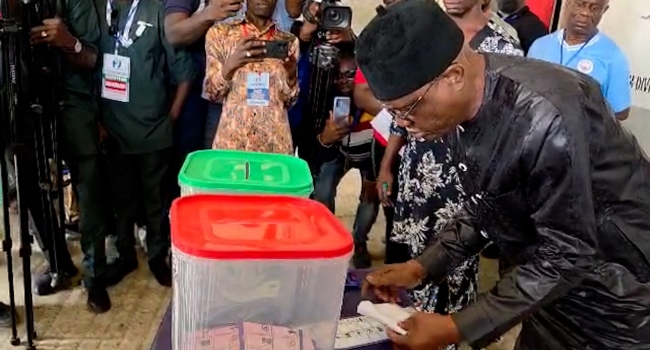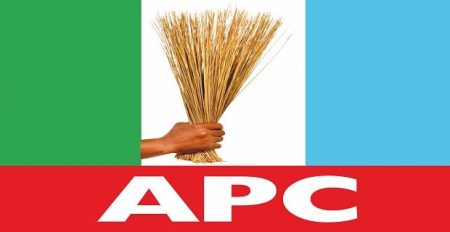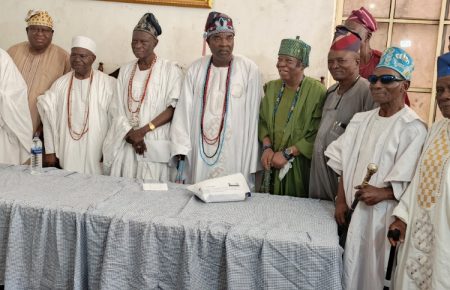Paragraph 1: The Cast of a Vote and the Weight of Local Elections
Nyesom Wike, the Minister of the Federal Capital Territory and former governor of Rivers State, cast his vote on Saturday, August 30, 2025, in the local government elections taking place across Rivers State. This seemingly simple act of civic duty carries significant weight, not only for the immediate impact on local governance but also for its broader implications within the political landscape of Rivers State and Nigeria as a whole. Local government elections, often overlooked in the shadow of national and state-level contests, serve as a crucial link between the government and the governed, directly influencing the day-to-day lives of citizens through services like sanitation, primary education, and local infrastructure development.
Paragraph 2: Wike’s Presence and the Political Dynamics of Rivers State
Wike’s participation in the local government elections is particularly noteworthy given his prominent position in Nigerian politics. As a former governor and current FCT Minister, his presence carries symbolic weight, potentially influencing voter turnout and impacting the perception of the election’s legitimacy. His continued engagement in Rivers State politics, even after assuming a federal role, underscores the complex power dynamics at play within the state. Wike’s political influence and his relationship with the current state administration are factors that contribute to the undercurrents of these local elections, making them a microcosm of the larger political landscape of Rivers State.
Paragraph 3: Security Measures and Ensuring a Smooth Electoral Process
Security was a prominent feature of the election day, with a heavy presence of security agencies deployed across Rivers State to ensure a peaceful and orderly voting process. This heightened security underscores the sensitivity surrounding the elections, reflecting a concern for potential disruptions or violence. The need for such robust security measures raises questions about the perceived risks and vulnerabilities associated with the electoral process in the state. Maintaining a secure and transparent voting environment is fundamental to the credibility and legitimacy of any democratic election.
Paragraph 4: The Scope and Scale of the Local Government Elections
The local government elections encompassed all 23 local government areas of Rivers State, spanning 319 wards and 6,866 polling units. This extensive reach highlights the significant logistical undertaking required to organize and manage the elections effectively. The sheer number of polling units and the geographical spread across the state pose challenges for election officials, security personnel, and voters alike. A successful election requires meticulous planning and coordination to ensure access for all eligible voters and the accurate tabulation of results.
Paragraph 5: The Context of Previous Electoral Disputes and the Path to the Present
These local government elections follow the nullification of the October 2024 polls by the Supreme Court, adding another layer of complexity to the current electoral process. The annulment of the previous elections raises questions about the integrity of the electoral system and highlights the importance of adherence to legal and procedural guidelines. Conducting these new elections within a relatively short timeframe following the court ruling demonstrates a commitment to upholding the principles of democratic governance and ensuring that local representation reflects the will of the people.
Paragraph 6: The Importance of Local Elections in a Democratic Framework
The ongoing local government elections in Rivers State are more than just a local event; they represent a fundamental pillar of democratic governance. They provide an opportunity for citizens to exercise their right to choose their local representatives and hold them accountable. The outcome of these elections will shape the direction of local governance in Rivers State for the coming years, impacting crucial services and development initiatives. Furthermore, the conduct and outcome of these elections serve as a barometer of the health of democracy at the grassroots level, reflecting the effectiveness of electoral processes and the engagement of citizens in shaping their local communities.



